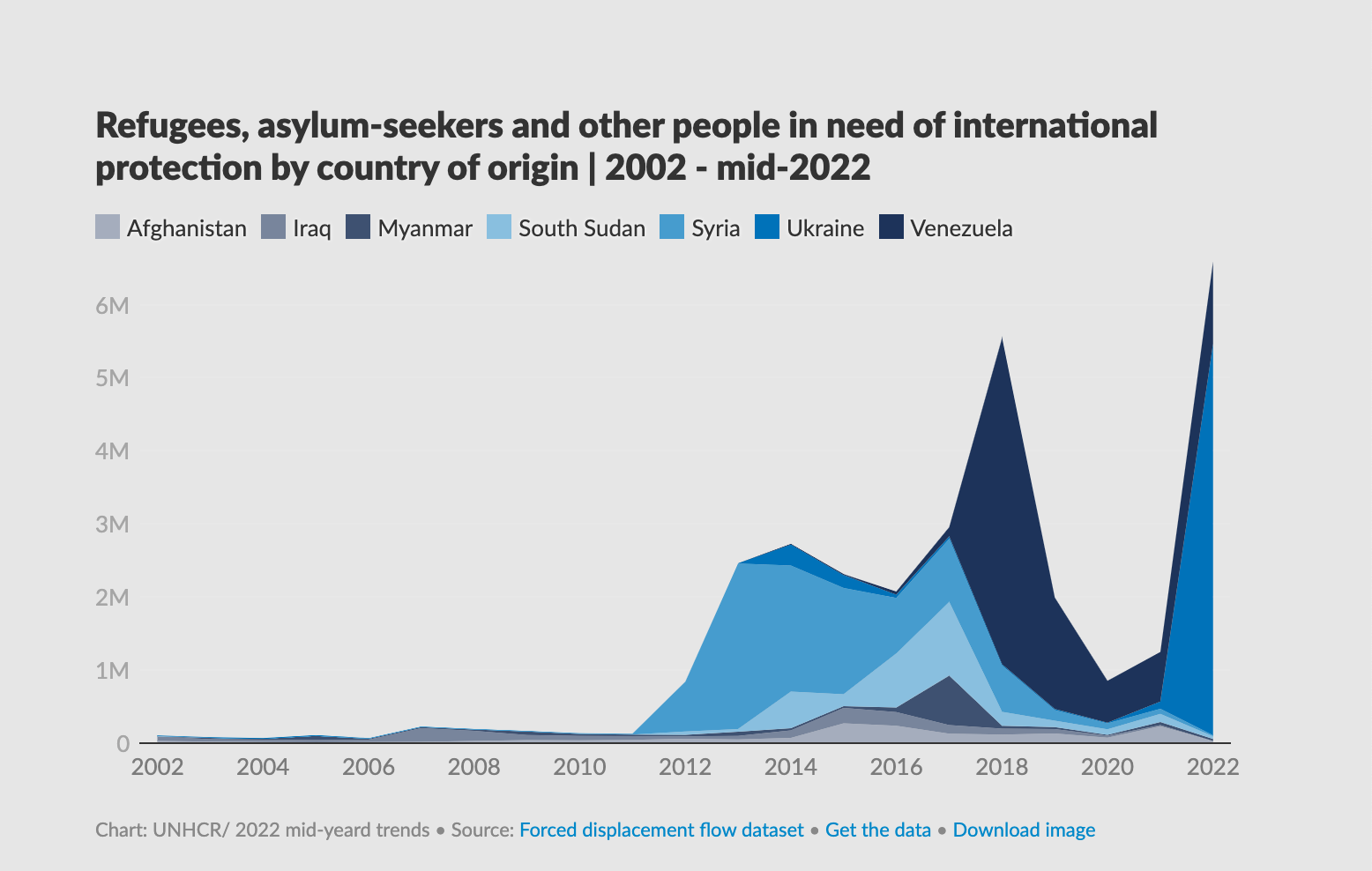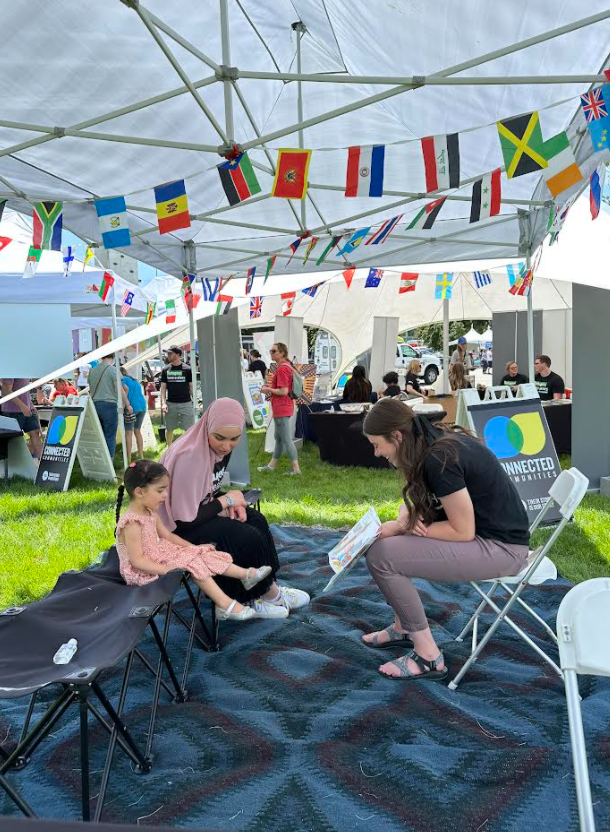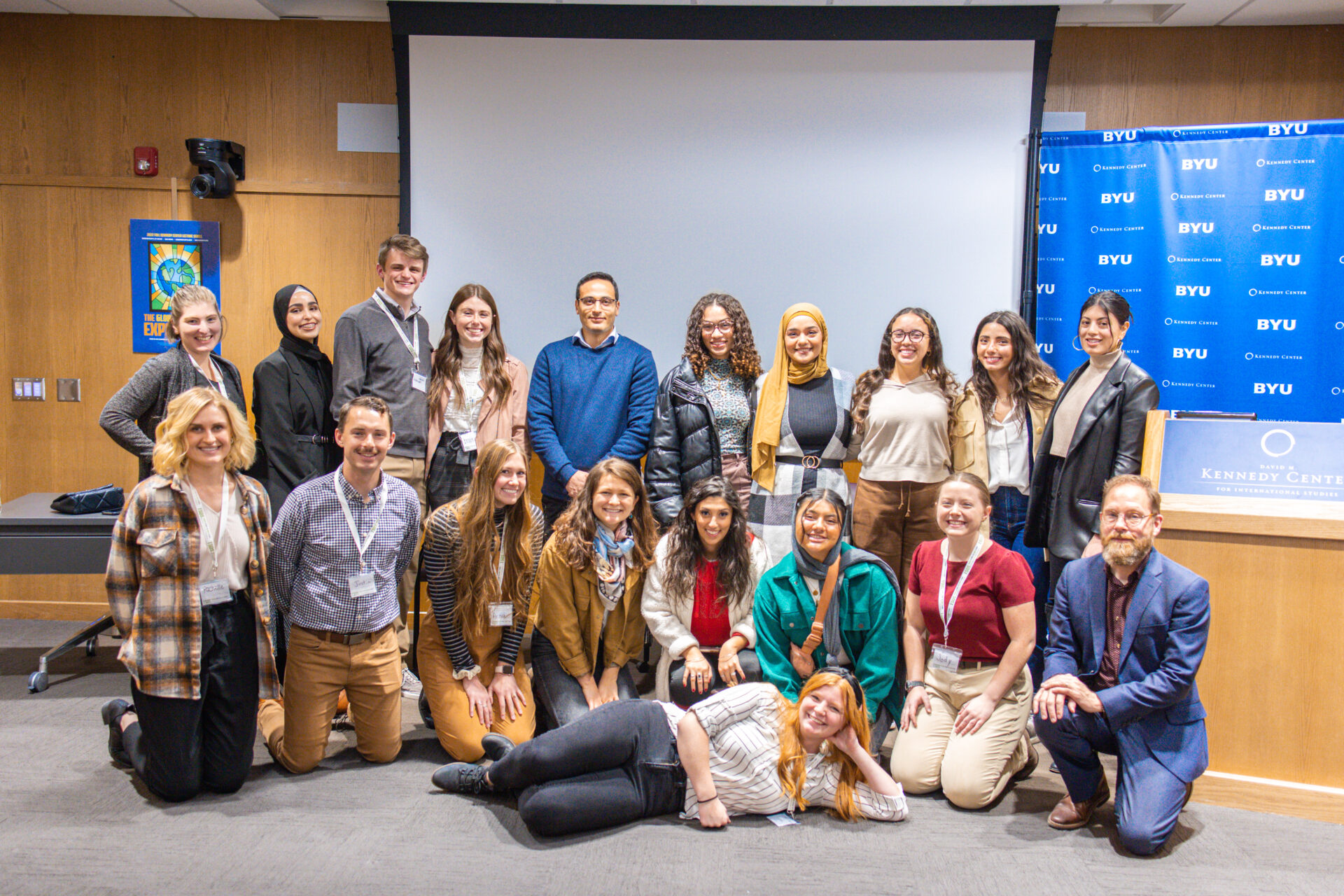Their Story is Our Story, a non-profit organization with a chapter on BYU campus, strives to create understanding for refugees displaced worldwide through storytelling.
The mission of TSOS, according to its website, is to “Collect and share the experiences of refugees and allies to encourage understanding and empathy, advance public policy supporting refugees, and help individuals and communities welcome people forcibly displaced from their homes due to violence, persecution and other events outside of their control.”
The UNHCR 2023 Global Appeal reported an anticipated 117.2 million forcibly displaced or stateless people in 2023, with 96% of those being refugees, asylum seekers and internally displaced persons.

Brooke Bennett, copresident of TSOS and a senior studying family life, expressed the number of displaced people is overwhelming.
“We always talk about these unfathomable numbers worldwide. There are so many displaced refugees that it’s hard to even comprehend or connect with the number,” Bennett said.
Bennett explained it’s difficult to understand what she can do as one person to help with the refugee crisis since the numbers are so high but emphasized everyone can make a difference by serving people one by one.
“Sometimes it’s easy to look at what’s happening in the world and feel hopeless. You feel like you can’t make a difference, especially concerning the refugee crisis,” Bennett said. “You see how many people are displaced worldwide, and it’s hard even to comprehend what you can do as one person. But it really is that one-by-one service from the perspective of The Church of Jesus Christ of Latter-Day Saints — and serving as the Savior did.”
Justin Lemke, a senior studying public health, said it is important to see the large numbers as not just statistics but as individual people.
“Statistics are often just seen as numbers, and they are important, but we often forget that these statistics are a bunch of individuals who have emotions, dreams, passions, hopes and families,” Lemke said.
One of Their Story is Our Story’s goals is to help others see each refugee and displaced person as a person with their own identity.
“As the world grapples with unprecedented numbers of displaced people, individual stories are critical, reminding us that each number represents a person with their own identity, experience and dreams. When we know someone’s story, we see our shared humanity and find ways to be part of the solution,” the TSOS website states.
As the number of displaced people worldwide keeps rising, Bennett believes creating understanding is essential.
“The minute you really see somebody, you look into their eyes and hear their story, you recognize that their story really is our story. They are so much like us. They have desires, they have passions, they have families and they have so many different things they care about. We really shouldn’t have a negative perspective of them,” Bennett said.
Emily Hooke, a public relations major, expressed how being a part of TSOS has helped her get to know and meet others in the community.
“I’ve loved discovering just how much common ground I share with those from foreign lands, cultures and languages here in Provo,” Hooke said. “They are absolutely incredible people, and their stories inspire me to want to be a better person.”

Jody McOmber, copresident of the BYU Their Story is Our Story chapter, expressed the importance of raising awareness and creating compassion within and around the refugee community.
“There’s a quote, ‘Being a refugee isn’t what you are. It’s something that happens to you.’ Being a refugee isn’t a decision people make. They’re just leaving from whatever circumstances that drove them away to try to find safety and security where they can,” McOmber said.
McOmber said BYU’s mission statement of “enter to learn, go forth to serve” should emphasize to BYU students the importance of serving others while they are still in college.
“What’s the point of having that mission statement when you’re not even learning to serve now?” McOmber said.
Lemke agreed with McOmber’s sentiment and said participating in TSOS has helped him feel he is fulfilling the BYU mission statement.
“Trying to help understand and empathize and create connections, relationships and friendships with these people is an important part of fulfilling that mission and helping us be better disciples of Christ,” Lemke said.
Lemke invited those who are interested in growing their understanding to be a part of the organization.
“If you’re interested in expanding your understanding, wanting to learn or listen to someone’s story or learning how you can help, I think this is a great place to start,” Lemke said. “All it requires is your attention, empathy, consideration and humanity.”
To find more information about TSOS’s different monthly events and service opportunities, students can sign up for its newsletter and follow its BYU club website or Instagram.





